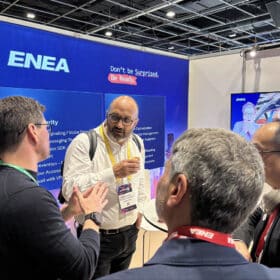The Techco Revolution Has Begun
Tech should enable change and not drive it, it is the organization that changes, using tech as the enabler. In the fast-paced, software-defined environment, more and more telcos are adopting a tech mindset to help them not only compete but carve out new opportunities and set new industry standards; the telcos who will be trailblazers are combining this with a deep consideration of how their organizations and people will change. Simply it is not tech for tech’s sake.
As the rollout of 5G gathers pace and the IoT landscape booms, ambitious telcos are quite rightly assessing the potential for new use-cases and value propositions and are forging the organizational path ahead. It’s a critical time, with seemingly uncapped potential, and that’s what came across loud and clear at Mobile Europe’s Telco to Techco virtual event on 29-30 March.
Experts from around the world shared their insights on everything from organizational and structural challenges to future use-cases and challenges surrounding private 5G, the edge, lawful intercept, AI, and, of course, automation. Mobile operators speaking at the event included BT, Deutsche Telekom, Orange, Swisscom, Tele2, Telenor and Vodafone. The discussions, which were deep, interactive, and encouraged participation, also shone a light on the challenges associated with establishing new best practices as the industry sought to capitalize on the capabilities offered by 5G and the lessons learned from 4G.
On day 1 our very own Oliver Korfmacher, CTO of Telecoms at Enea, joined a panel of experts to discuss “the journey to cloud-native”. They explored how telcos can succeed in becoming low code, no code, no footprint, developer-centric operators. They also reviewed which legacy systems were ripe for cloud migration, and how containerization and microservices could be leveraged to build on these migrations in pursuit of an agile future.
On day 2 Oliver gave a talk on the importance of multi-vendor strategies when it comes to tech transformation, including the pros and cons, establishing a secure and automated environment, and the benefits of a hybrid approach to development.
Oliver’s three key actionable takeaways were as follows:
- Telcos should automate the CI-CD-CT (continuous test) process and clearly define responsibilities, so that if things do go wrong, the business can leap straight to remedial action instead of finger-pointing.
- Telcos will very quickly have an important decision to make. In a multi-vendor situation, they can retain ownership and innovate while nurturing knowledge and experience within their own teams. With an integrator, on the other hand, ownership will be relinquished but telcos will enjoy more streamlined project and operations management.
- Data management of customers’ information should be a cornerstone in any strategy – by owning the means to access, update and distribute data, telcos will be able to develop at their own pace.
The ability to leverage 5G, IoT and edge capabilities effectively, in order to create tech-driven value propositions, is fast becoming a primary objective for telcos, driving the techco revolution. It is also important to bear in mind the unique challenges of operating in a mixed infrastructure environment as operators evolve to become techcos.
Operators are exploring multi-vendor strategies, their impact on location (eg edge), security, interoperability and managing data for a plethora of use cases in distributed deployments all become critical. And the real challenge lies in their ability to maintain their commitment to their subscriber base and keep service standards up while this revolution takes place.
Read the first, pre-event blog post here.





